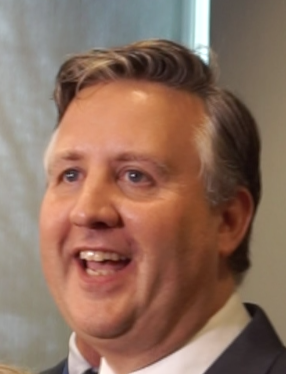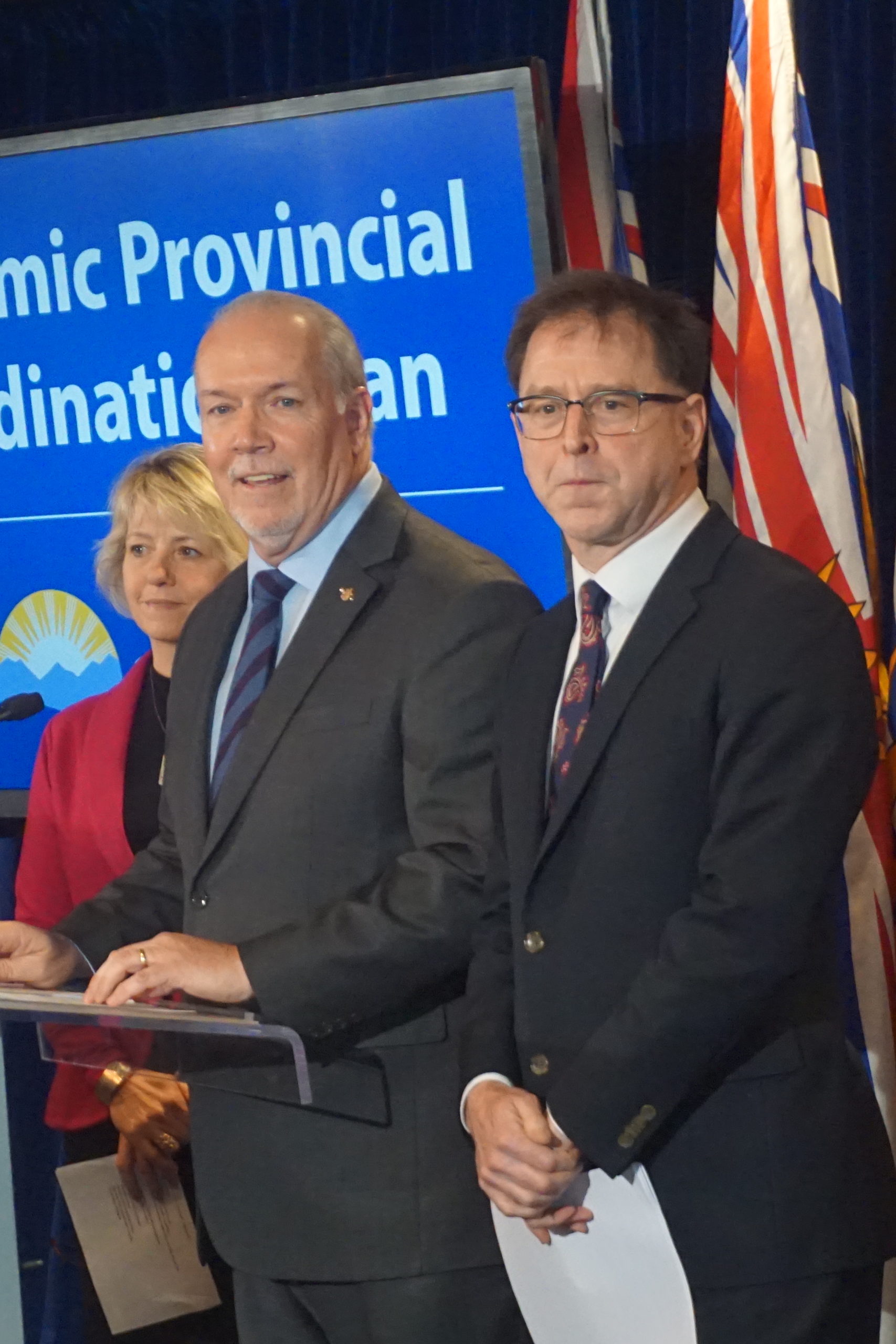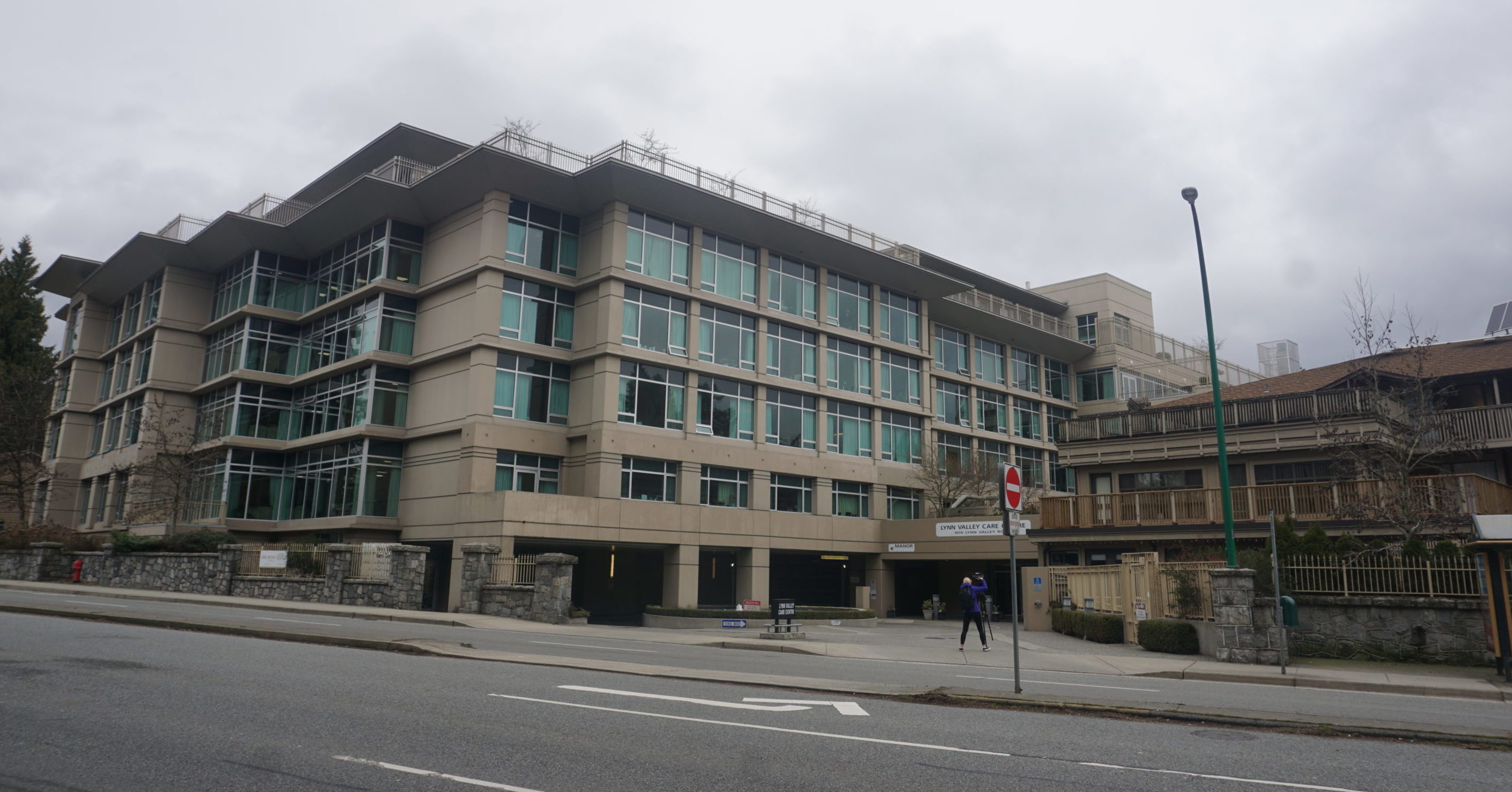
Bob Mackin
Imagine being the mayor of a big city who declared an emergency, but there was no imminent risk of harm to citizens in his jurisdiction.
Then, more than a year later, a real, deadly emergency comes along and the economy suddenly screeches to a halt. The mayor dithers and refuses to push the alarm button.

Mayor Kennedy Stewart (Mackin)
That is Vancouver Mayor Kennedy Stewart’s dilemma.
The October 2018-elected city council under Stewart moved in January 2019 to declare a climate change emergency. But no meeting with top officials or live, televised news conference followed. Stewart went about his business for a couple of days and then took the weekend off. It was an emergency in name only.
Now, the week after the World Health Organization declared the novel coronavirus from Wuhan, China a global pandemic, Stewart is dithering.
“We base our choices on the needs, based on science and the best public information we have,” Stewart said at a March 16 news conference in city hall. “At this point, we don’t see a need operationally to declare a state of emergency. You can imagine a number of things happen when you do that. But if we did do it, it would really centralize power in the city, allowing us to take extraordinary measures, like, for example, procure hotel space, to deliver clothing, to deliver food, to disperse groups of people, so it really is the top level we can go to.”
For the time being, Stewart will not follow the lead of Calgary Mayor Naheed Nenshi, who declared a coronavirus emergency on March 15.
“I’m ready to do it, if we think we need to do it,” Stewart said.
What Stewart did do on March 16 was announce the citywide, temporary shutdown of community centres, swimming pools, hockey rinks, libraries and by-admission gardens. Vancouver joined Surrey, Delta and West Vancouver in closing recreation and library facilities. All fear they may not be able to maintain core, essential service levels, if staff become ill.
City manager Sadhu Johnston was absent from the news conference, but city hall communications told theBreaker.news that he was healthy.
Stewart said he was in the early stages of talking with senior governments and area mayors about economic stimulus programs and tax breaks to cushion the blow for the economy.
On the eve of St. Patrick’s Day, Stewart said Vancouverites should think twice before going out and stay a metre away from others if they have to. Restaurants and bars, he said, should reduce their capacity to make more space between tables.
Stewart, who is also the police board chair, was asked how the city would monitor establishments, to make sure they do not allow more than 50 people inside. The city has business licence inspectors, but it they were not being mobilized to conduct spot checks.
“We’re not policing right now, we’re very proud with the way the city has reacted to this point,” Stewart said.
Stewart’s tune changed suddenly in late afternoon.
He told Lynda Steele on CKNW that he had spoken to Police Chief Adam Palmer after Vancouver Coastal Health medical officer Dr. Patty Daly issued an order to close downtown core bars and restaurants on St. Patrick’s Day. Stewart recommended enjoying the taste of Guinness and the sound of the Pogues at home instead.

Dr. Bonnie Henry (left), Premier John Horgan and Health Minister Adrian Dix (Mackin)
The 50-person limit comes from Provincial Health Officer Dr. Bonnie Henry’s formal order, a “notice to owners, occupiers, and operators of places at which large numbers of people gather,” which reduced the public gatherings limit from the 250 attendees cap she set late last week.
That means you cannot invite 50 friends to a St. Patrick’s Day hooley, Easter egg hunt in April or a Cinco de Mayo fiesta in May.
Henry’s order lasts until the end of May. She has the option to extend it into June or reduce the ceiling further.
Henry’s order includes a lengthy, broad list of venues. Such as casinos, which were ordered to fold their cards at 11:59 a.m. March 16, 12 hours after Great Canadian Gaming shut its B.C. gambling venues.
The wording of Henry’s order against public gatherings means city hall and the park board should finally clear Oppenheimer Park’s tent city, if more than 50 people are on the park. A problem would be finding shelter for park dwellers, as the city transitions into spring with double digit daytime temperatures and freezing overnight temperatures in the short-term weather forecast.
Three more deaths
The latest province-wide stats released March 16 said B.C. had 30 new cases in the Vancouver Coastal, Fraser and Interior health regions, for a total 103.
Four deaths from Lynn Valley Care Centre in North Vancouver, including three over the weekend. Six people are in acute care, but five have fully recovered and the rest are self-isolating at home.
Lions Gate Hospital, where three people in the administration department tested positive, will only accept emergency patients. The government is cancelling thousands of surgeries province-wide, recalling recently retired doctors and nurses. It is also reducing court operations, by postponing jury selection and delaying cases that are not urgent between now and the end of May.

Lynn Valley Care Centre (Mackin)
Henry revealed that at least four cases stem from the Pacific Dental Conference, held March 5-7 at the Vancouver Convention Centre.
Henry said more than one person at the conference had the virus and was passing it to others. Cases have been identified from that conference in other provinces across Canada. She said everybody who attended has been notified that they need to stay home. If she had her way, the conference would never have happened.
“It was at a time when I was advising that medical conferences, in particular, should not be held,” she said.
But a statement from the organizer, the B.C. Dental Association, said that the Provincial Health Services Agency was consulted more than a week before the event and Dr. David Patrick from the B.C. Centre for Disease Control was a speaker at the conference.
“At no time was the PDC asked by any public health representatives to halt the conference,” said the prepared statement attributed to president James Singer.
Henry, Health Minister Adrian Dix, Premier John Horgan and at least two deputy ministers attended a news conference on March 6 in the adjoining Pan Pacific Hotel, which shares doors, escalators, elevators and washrooms with the Vancouver Convention Centre at Canada Place. The Vancouver cabinet office is in the complex’s World Trade Centre.
Meanwhile, Prime Minister Justin Trudeau ordered that Canada’s borders be restricted to Canadian citizens, permanent residents, diplomats, flight crews and American citizens. Trudeau called upon Canadians to stay home. For those Canadians outside the country, he urged them to come home, before mass-cancellation of flights.
Dix was disappointed border access was not restricted further.
“We remain concerned that access for visitors from the U.S. continues to be allowed, given the situation particularly in King and Snohomish county in Washington State, which affects B.C. more than anyone else,” Dix said. “It’s our strong view, and our strong message, that visitors from the U.S., don’t come.”
Coronavirus cases in Washington have exceeded the 900 mark, including 48 deaths.
Laurie Trautman, director of the Border Policy Research Institute at Western Washington University in Bellingham, said southbound car volume at the border dropped 33% in the first half of March, on a year-over-year basis.
Canada and the U.S. do about $1 billion a day in cross-border trade. U.S. government figures for 2019 show 3.9 million vehicles crossed at Blaine carrying 7.7 million passengers. Nearly 370,000 trucks and 303,000 full containers also crossed the 49th parallel.
- Looking for information on how to keep yourself and others healthy amid the coronavirus pandemic? Do you have symptoms? Click here for all you need to know, from HealthLinkBC. The province’s dial-a-nurse 8-1-1 hotline has been swamped by calls, so the government has started a new toll-free hotline, 888-COVID19 (268-4319).
Support theBreaker.news for as low as $2 a month on Patreon. Find out how. Click here.











